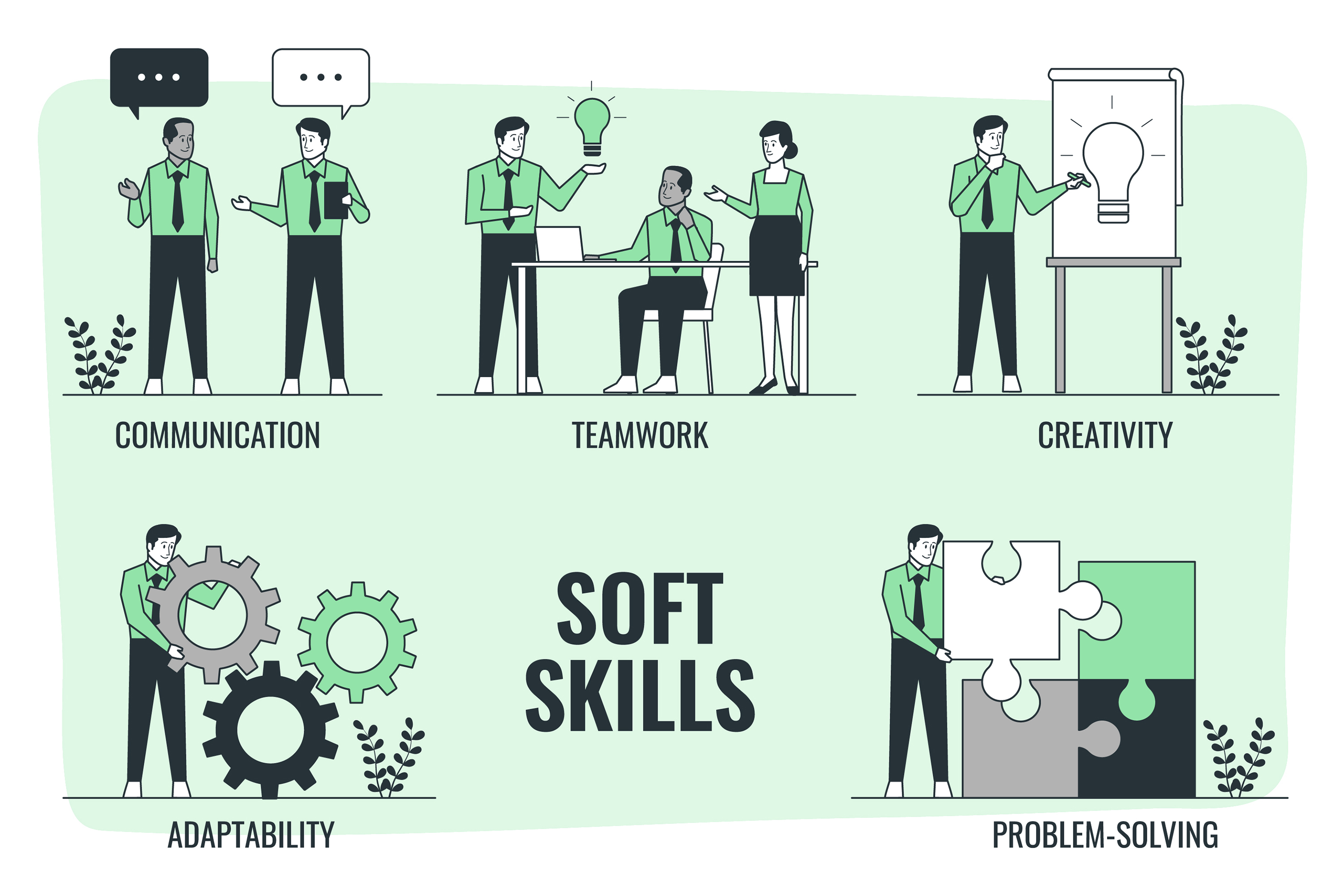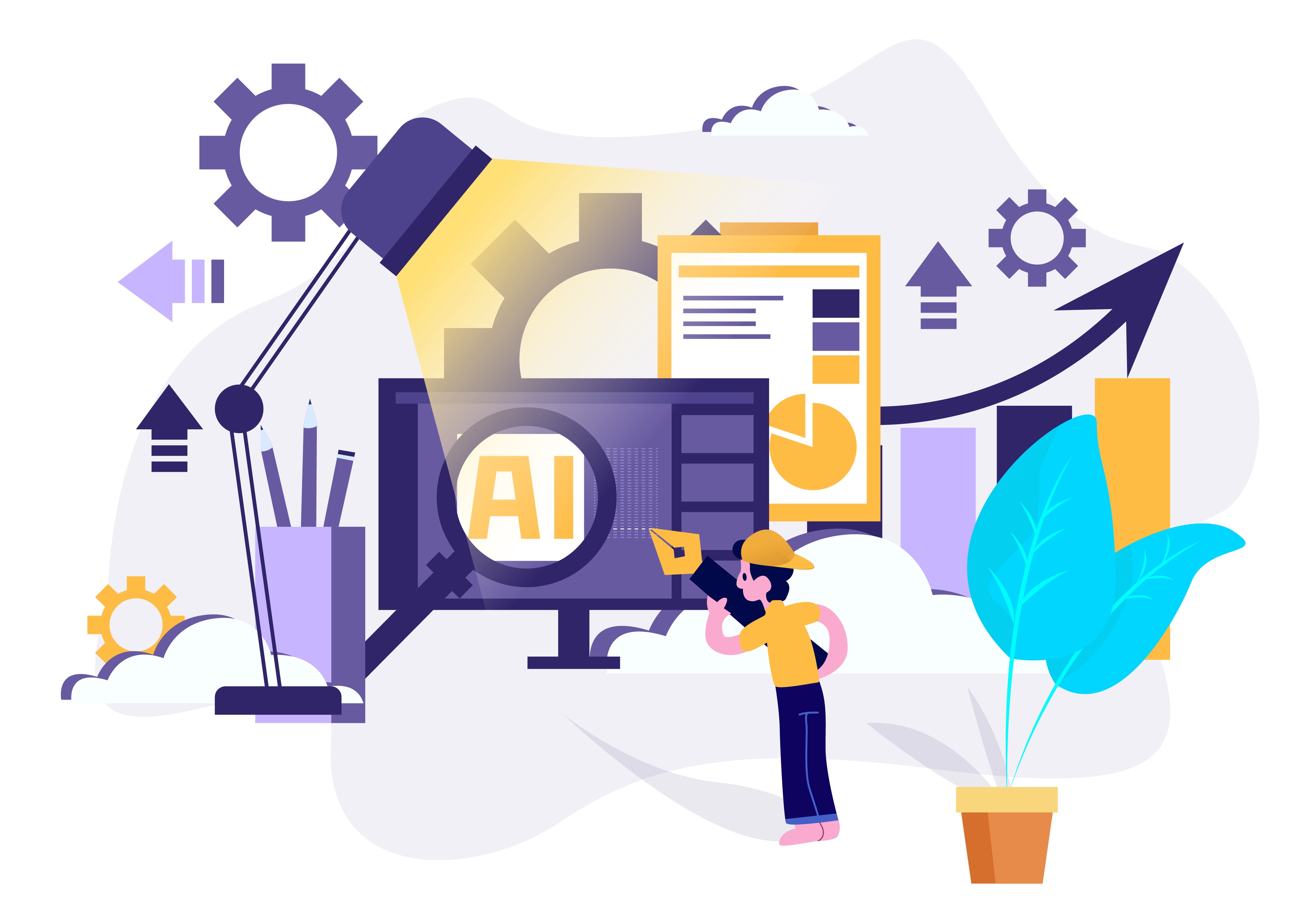As a follow-up to my previous series, this article is a supplementary read that compliments the hard skills you have gained in your journey.
Why do companies and organizations provide training, workshops, and courses for personal development more than professional development? Personal development, as the word says, is personal. It should come naturally, right?
There are basically two types of skills: Hard Skills and Soft Skills.
Hard Skills: These include physical skills or mental skills that are important to your job. A software developer has the skills to write great code. Technical people put more effort into learning technical skills.
Soft Skills: These are people skills, non-technical, that are required in every field to work efficiently, grow iteratively, and overall be a better person. Most technical people are not even aware of it.
In reality, every person already has many of the soft skills mentioned below but requires external stimulation to get them into motion.
In today’s day and age, we focus more on getting things done, moving fast breaking things; we have a short attention span, we have FOMO, and which suppresses extra skills that are required to succeed.
So let’s look at the importance of Soft Skills for Software Developers
First, Why Soft Skills Matter
Soft skills are critical for success as a software developer. They impact how you work with others, communicate, and solve problems. They can also impact your career advancement, and job satisfaction which in turn keeps you motivated and lead a healthy lifestyle.
Common Soft Skills for Software Developers
-
Communication skills
-
Collaboration skills
-
Problem-solving skills
-
Time management and organization skills
-
Adaptability and flexibility
-
Emotional intelligence
Communication Skills
Effective communication is crucial for software development.
Good communication is not only required within the team but it is also important to communicate effectively with other teams. Teams that you are dependent on and teams that depend on you. For eg: communication between Front-end, Back-end, and QA is crucial for the success of any software project.
Communication with stakeholders and customer brings clarity to the work you are doing and answers the most important question — Why you are doing, what you are doing? It can clear companies vision and goals that everyone is working towards. At the same time, it builds trust, resolves conflicts, manage expectations, and improves visibility.
Improving communication skills involves:
-
Active listening,
-
Clear and concise writing, and
-
Effective presentation skills.
Communication is a pillar of trust between employers and employees and today’s remote work culture has made the foundation stronger.
Collaboration Skills
Software development is a team sport.
Good collaboration skills help you work effectively with your team and other stakeholders
Improving collaboration skills involves:
-
Learning to work with people who have different perspectives
-
To negotiate and resolve conflicts, and
-
To share ideas and knowledge
Be pro-active. Be curious. Put effort to gel with others. Learn and share in the process.
Problem-solving Skills
Software development involves solving complex problems every day.
Good problem-solving skills help you find solutions quickly and effectively.
Improving problem-solving skills involves:
-
Learning to break problems down into smaller parts
-
To use data and information to make decisions, and
-
To seek feedback from others
Creativity
Software development is not all about problem-solving it also required creativity.
A creative mindset helps you see the big picture, keep an open mind, motivate you, and help in solving challenging problems by coming up with creative solutions.
It can also help you ask the right questions and bring people together.
Improving creativity skills involves:
-
Practice and experimentation: The more you engage in creative activities, the better you will become
-
Learn from others
-
Stay curious and open-minded
-
Creative ideas often come from collaboration and exchanging ideas with others
-
Foster a growth mindset. Be open to feedback, and don’t be afraid to take risks and try new things
Creativity is not just a natural talent — it’s a skill that can be developed and honed over time with practice, persistence, and a willingness to experiment and learn.
Time Management and Organization Skills
Software development requires careful planning and organization.
Good time management and organization skills help you stay on track and meet deadlines.
Improving time management and organization skills involves:
-
Learning to prioritize tasks
-
To use tools and techniques to stay organized, and
-
To seek feedback from others
These are tough economic times. Having multiple sources of income has become a necessity for most. In this scenario, it is very important to manage time wisely to ensure no projects are affected. Prioritize your work, have transparent communication, and plan and organize the load accordingly.
Adaptability and Flexibility
Software development is constantly changing and evolving.
Good adaptability and flexibility skills help you keep up with new technologies and approaches
Improving adaptability and flexibility skills involves:
-
Learning to embrace change
-
To seek out new opportunities and challenges, and
-
To stay open to new ideas and perspectives
Though it is adapting to changing dynamics of the teams, having new team members, shifting priorities, or meeting deadlines. Adapting to situations and maintaining flexibility will deflect any negativity.
Emotional Intelligence or EQ
Emotional intelligence is critical for success as a software developer. EQ is the basis of many soft skills mentioned above.
People who have high EQ readily understand, empathize, and connect with the people around them. This brings inclusivity and diversity to the workplace.
Good emotional intelligence helps you manage stress, work effectively with others, and stay motivated.
Improving emotional intelligence involves:
-
Learning to understand your own emotions and the emotions of others
-
To manage stress, and
-
To stay positive and motivated
Emotional intelligence can play an important role in helping software developers work effectively as part of a team, solve problems, adapt to change, and understand the emotional needs of others.
Conclusion
Soft skills are critical for success as a software developer. Whether you work in a team or are an individual contributor. Whether you are part of a big company or an indie developer. Mastering soft skills will accelerate you toward your goal in a big way and in the process inspire others.
There are many ways to develop your soft skills, including
-
Seeking feedback from others
-
Participating in training and development programs, and
-
Taking on new challenges and opportunities
I am not presenting any new information here. There are tons of books, articles, and videos, and TED Talks on soft skills and how to improve them. They provide a deep understanding of the topic with more categories and a detailed plan for improving it. I am also learning as I progress and there is still a lot left to learn.
Full Disclaimer: I have written this article in collaboration with our new friend, ChatGPT, from OpenAI. I wanted to assess the new kid in the block and evalute it’s potential. More on it in my next artcile. Though it helped me prepare the outline for this article, I have added my own creativity and thoughts to the subject — importance of soft-skills. I do believe it is important for not only your progress but also for the progress of the people around you. I am also learning as I keep progressing and there is still lot left to learn. Cheers!
Post header Image by storyset on Freepik



